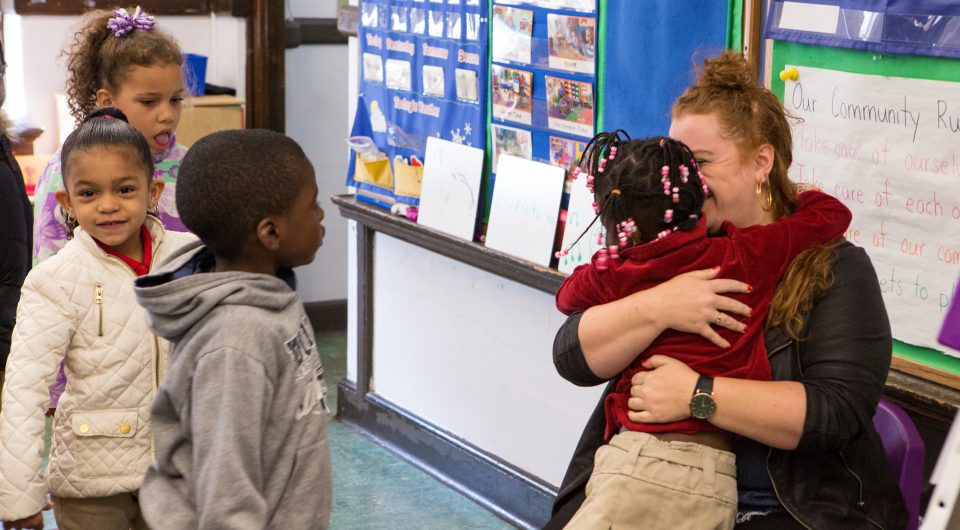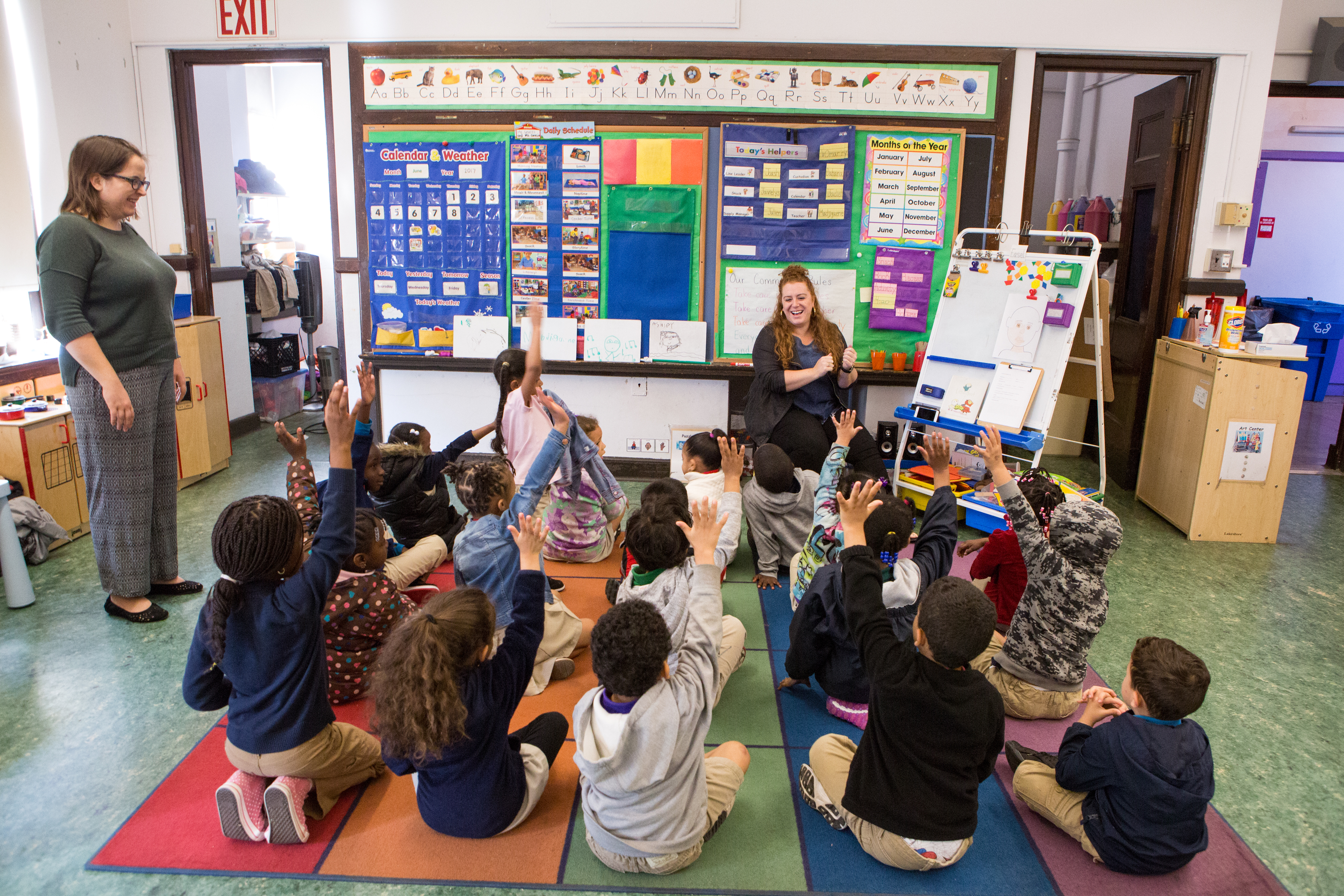
Every day social innovators and social innovation organizations across the country are measurably impacting communities and individuals. This Practice to Policy blog series lifts up the voices of the more than 70 organizations that make up the America Forward Coalition and our broader social innovation network by highlighting their outcomes-based solutions to our country’s most pressing social problems and why these solutions must be reflected in our federal policies. Today we will hear from Educators for Excellence (E4E) about teacher-led advocacy on school climate and discipline issues.
Every morning, Nina Leuzzi’s class begins with a circle. Her pre-kindergarten students discuss their feelings, learnings, and plans in a community circle, where they also learn about self-control and how to care for each other. Her classroom management is centered in her belief that every student should feel “known.” “I make it a point to understand where my kids are coming from, their family structure, to understand and respond to their needs inside and outside school,” she explains. Within her “micro-community” of preschoolers, Nina, a 10-year veteran teacher in Boston, builds the kind of inclusive school climate with the potential to dismantle the school-to-prison pipeline. Outside the classroom, Nina works alongside other E4E teachers so that addressing discipline disparities and improving school climate is prioritized in Boston and across the country.
E4E is a teacher-led organization of nearly 30,000 educators based in six chapters across the nation dedicated to ensuring that teachers have a leading voice in the policies that affect their students and profession. E4E teachers identify issues that impact their schools and create solutions to these challenges. E4E then works with teachers to develop and run advocacy campaigns to implement those solutions. Recently, E4E teachers have ramped up their work in ending disparities in school discipline through both local and federal advocacy.

Nina knows that trauma is a significant barrier to her students’ learning: “The kids who I have coming in with adverse childhood experiences are unable to access learning in the same way other kids can. It’s become clear to me that the urgency in creating trauma-informed schools is incredibly necessary.” This led Nina to join the E4E-Boston Teacher Policy Team in 2017, where she worked on a team of teachers to the develop recommendations in their policy paper Schools That Heal: Creating Trauma-Informed School Communities
In December 2017, Nina also became involved in E4E’s federal campaign In Class, Not Cuffs to advocate for the preservation of the Department of Education’s 2014 federal discipline guidance, which encouraged districts with high rates of infractions to take much-needed steps to address discipline disparities. E4E teachers met with officials from the Department of Education and testified before the U.S. Commission on Civil Rights to share their perspectives on how discipline policies must be less exclusionary and express support for guidance that helps districts achieve this. In her testimony, Nina explained that “rather than immediately reacting to what students are doing, we, as teachers, need to unpack the why. Our discipline practices must be trauma-informed. They must address and help students understand their own feelings and stressors, feel part of a larger community that cares for them, and teach them how to make successful decisions.”
This work extends beyond the advocacy Nina and her peers engaged with in Boston and D.C. Take for example E4E-Chicago, where a dedicated group of teachers met as part of a Teacher Policy Team and published their recommendations for addressing school climate in their policy paper Sounding the Alarm: Building the Climate and Culture Our Students Need. They have already made one of their recommendations a reality, recently co-hosting a series of problem-solving forums with Chicago Public Schools that encouraged collaboration within and across school communities to improve school climate.
In E4E-New York, a teacher-driven policy paper from 2015, Climate Change: Creating Safe, Supportive Schools for All Students, presented recommendations to create positive, student-centered school climates. For the next two years, nearly 1,000 E4E educators advocated for these recommendations at the city level to eliminate K-2 suspensions and make changes to the student disciplinary code. Recently, E4E advocated to include measures of school climate in New York’s state ESSA plan and successfully advocated for the expansion of a restorative justice pilot program to three additional districts in the city.
Through her work with the Boston Teacher Policy Team and the federal In Class, Not Cuffs campaign, Nina joined the efforts of thousands of other E4E teachers enacting change at the school, district, state, and national level. Reflecting on her recent experiences with as an E4E teacher-leader, Nina argues, “Teacher voices are incredibly powerful. And teachers ultimately have the most accurate perspective of what is happening in the classrooms around the country.” We couldn’t agree more. E4E is proud to have teachers like Nina, who fight for their students every day both in and outside their classrooms.
This post is part of America Forward’s Practice to Policy blog series. Follow along on Twitter with #Practice2Policy and catch up on the series here.
Leave a Reply
You must be logged in to post a comment.